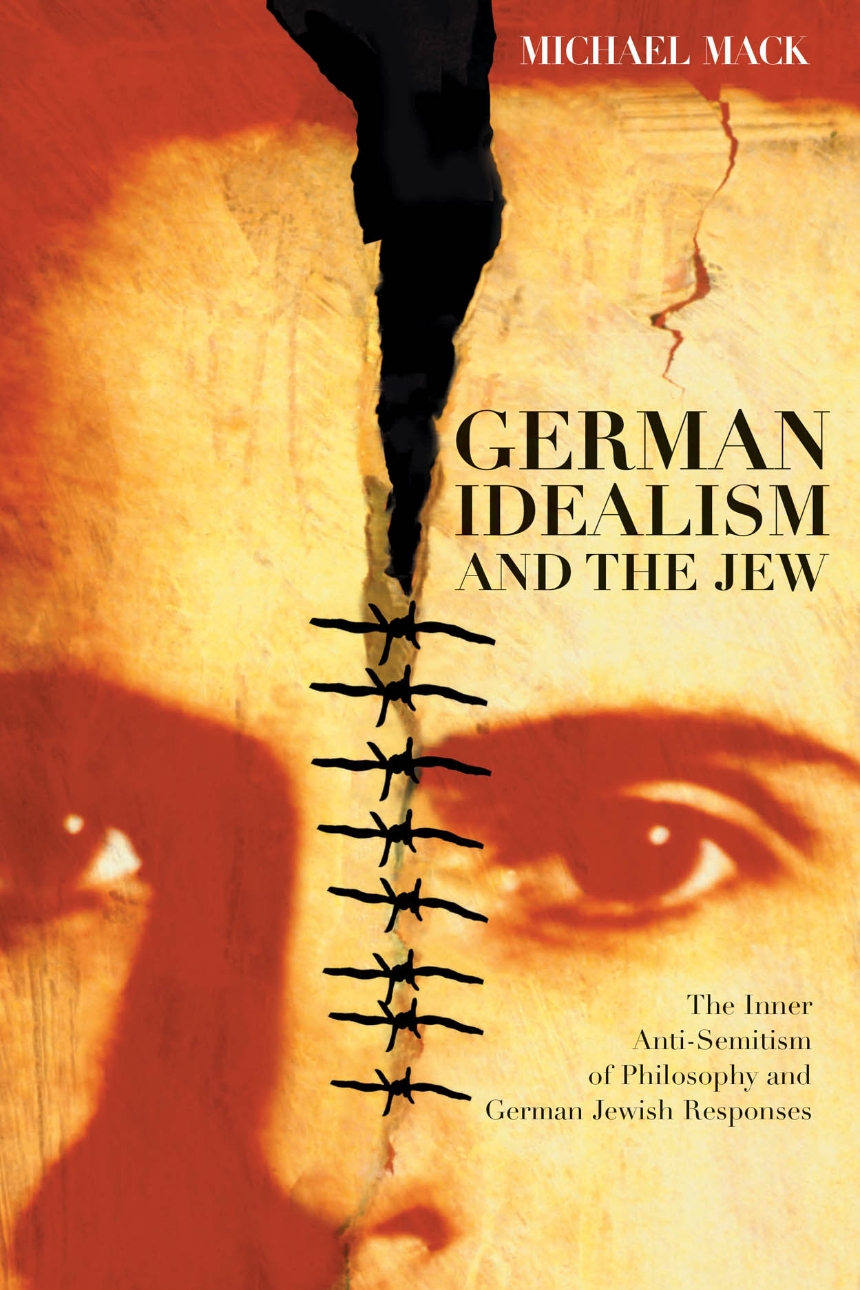German Idealism and the Jew
The Inner Anti-Semitism of Philosophy and German Jewish Responses
9780226500966
9780226500942
9780226115788
German Idealism and the Jew
The Inner Anti-Semitism of Philosophy and German Jewish Responses
In German Idealism and the Jew, Michael Mack uncovers the deep roots of anti-Semitism in the German philosophical tradition. While many have read German anti-Semitism as a reaction against Enlightenment philosophy, Mack instead contends that the redefinition of the Jews as irrational, oriental Others forms the very cornerstone of German idealism, including Kant’s conception of universal reason.
Offering the first analytical account of the connection between anti-Semitism and philosophy, Mack begins his exploration by showing how the fundamental thinkers in the German idealist tradition—Kant, Hegel, and, through them, Feuerbach and Wagner—argued that the human world should perform and enact the promises held out by a conception of an otherworldly heaven. But their respective philosophies all ran aground on the belief that the worldly proved incapable of transforming itself into this otherworldly ideal. To reconcile this incommensurability, Mack argues, philosophers created a construction of Jews as symbolic of the "worldliness" that hindered the development of a body politic and that served as a foil to Kantian autonomy and rationality.
In the second part, Mack examines how Moses Mendelssohn, Heinrich Heine, Franz Rosenzweig, and Freud, among others, grappled with being both German and Jewish. Each thinker accepted the philosophies of Kant and Hegel, in varying degrees, while simultaneously critiquing anti-Semitism in order to develop the modern Jewish notion of what it meant to be enlightened—a concept that differed substantially from that of Kant, Hegel, Feuerbach, and Wagner. By speaking the unspoken in German philosophy, this book profoundly reshapes our understanding of it.
Offering the first analytical account of the connection between anti-Semitism and philosophy, Mack begins his exploration by showing how the fundamental thinkers in the German idealist tradition—Kant, Hegel, and, through them, Feuerbach and Wagner—argued that the human world should perform and enact the promises held out by a conception of an otherworldly heaven. But their respective philosophies all ran aground on the belief that the worldly proved incapable of transforming itself into this otherworldly ideal. To reconcile this incommensurability, Mack argues, philosophers created a construction of Jews as symbolic of the "worldliness" that hindered the development of a body politic and that served as a foil to Kantian autonomy and rationality.
In the second part, Mack examines how Moses Mendelssohn, Heinrich Heine, Franz Rosenzweig, and Freud, among others, grappled with being both German and Jewish. Each thinker accepted the philosophies of Kant and Hegel, in varying degrees, while simultaneously critiquing anti-Semitism in order to develop the modern Jewish notion of what it meant to be enlightened—a concept that differed substantially from that of Kant, Hegel, Feuerbach, and Wagner. By speaking the unspoken in German philosophy, this book profoundly reshapes our understanding of it.
Reviews
Table of Contents
Acknowledgments
Introduction: The Political, Philosophical, Theological, Sociological, and Literary Critical Ramifications of Anti-Semitism
Part One: Narratives
1 Positing Immutability in Religion: Kant
2 The Metaphysics of Eating: Jewish Dietary Laws and Hegel’s Social Theory
3 Transforming the Body into the Body Politic: Wagner and the Trajectory of German Idealism
Part Two: Counternarratives
4 Moses Mendelssohn’s Other Enlightenment and German Jewish Counterhistories in the Work of Heinrich Heine and Abraham Geiger
5 Political Anti-Semitism and Its German Jewish Responses at the End of the Nineteenth Century: Heinrich Graetz and Otto Weininger
6 Between Mendelssohn and Kant: Hermann Cohen’s Dual Account of Reason
7 Franz Rosenzweig, or The Body’s Independence from the Body Politic
8 The Politics of Blood: Rosenzweig and Hegel
9 Freud’s Other Enlightenment: Turning the Tables on Kant
10 Walter Benjamin’s Transcendental Messianism, or The Immanent Transformation of the Profane
Conclusion: Elias Canetti, Franz Baermann Steiner, and Weimar’s Aftermath
Notes
Index
Introduction: The Political, Philosophical, Theological, Sociological, and Literary Critical Ramifications of Anti-Semitism
Part One: Narratives
1 Positing Immutability in Religion: Kant
2 The Metaphysics of Eating: Jewish Dietary Laws and Hegel’s Social Theory
3 Transforming the Body into the Body Politic: Wagner and the Trajectory of German Idealism
Part Two: Counternarratives
4 Moses Mendelssohn’s Other Enlightenment and German Jewish Counterhistories in the Work of Heinrich Heine and Abraham Geiger
5 Political Anti-Semitism and Its German Jewish Responses at the End of the Nineteenth Century: Heinrich Graetz and Otto Weininger
6 Between Mendelssohn and Kant: Hermann Cohen’s Dual Account of Reason
7 Franz Rosenzweig, or The Body’s Independence from the Body Politic
8 The Politics of Blood: Rosenzweig and Hegel
9 Freud’s Other Enlightenment: Turning the Tables on Kant
10 Walter Benjamin’s Transcendental Messianism, or The Immanent Transformation of the Profane
Conclusion: Elias Canetti, Franz Baermann Steiner, and Weimar’s Aftermath
Notes
Index
